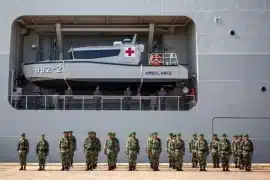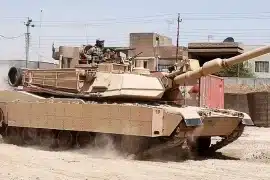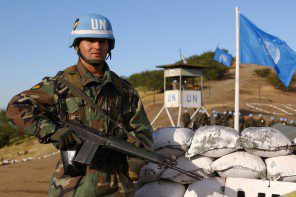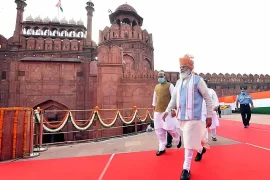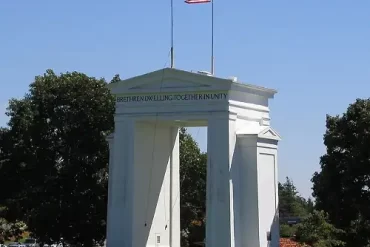On 18 January 2023, the Burkinabe government urged France to withdraw its troops from the territory of Burkina Faso (a Muslim-majority, resource-rich and landlocked state in West Africa). Responding to the demand, France declared on 25 January that it would withdraw the contingent of around 400 French troops stationed on Burkinabe territory within a month, and on the next day, Luc Hallade, the French Ambassador to Burkina Faso, was recalled to Paris for ‘consultations’.
Meanwhile, Ghana, the southern and largely pro-Western neighbour of Burkina Faso, has claimed that contractors of the Wagner Group, a Russian private military company (PMC) closely linked to the Russian government, have already been deployed on Burkinabe territory at the initiative of the Burkinabe government, a claim that has been echoed by several media outlets and open source intelligence (OSINT) platforms. So, to put it in simple terms, French troops are being replaced with Wagner contractors in Burkina Faso, and it appears that France is losing to Russia on yet another front in Francophone Africa, a non-compact region that consists of ex-French colonies and that is viewed by France as part of its ‘natural-historical’ sphere of influence.
The prospective French exit from Burkina Faso and the corresponding Russian entry into the country are part of a decade-long clandestine ‘proxy war’ between France, the traditional hegemonic power in Francophone Africa, and Russia, a rising power in the region. Surprisingly, the Franco-Russian geopolitical ‘tug of war’ in the resource-rich but impoverished region has so far avoided significant attention from the major mainstream media outlets. The tactics that have been utilized by Paris and Moscow in this silent war include information warfare, psychological warfare, assassinations, coups and counter-coups, the use of proxies (locally-based official military forces, militias, insurgent groups and PMCs) against each other, military interventions on behalf of allies, and even clandestine attacks on each other.
From a historical perspective, the French intruded into the region far earlier than the Russians. France colonized large parts of Africa in the 19th century, but most of the French colonies achieved independence by the late 20th century. However, in addition to retaining a few colonies (such as Réunion and Mayotte), France has so far managed to exert various degrees of control over a number of its ex-colonies in Africa through the employment of a number of realpolitik tools, including the maintenance of a ‘patron-client’ relationship, the elevation of pro-French politicians, the political and physical elimination of anti-French elements, the orchestration of coups, counter-coups, rebellions and assassinations, the incitement of inter-state conflicts, the direct deployment of French troops, the fostering of underdevelopment, the introduction of a French-backed common currency and the aggressive promotion of French language and culture.
On the other hand, Moscow entered the region in the late 1950s as a part of its Cold War strategy. Paris and Moscow were in opposite camps at that time, so they found themselves on opposite sides in a number of conflicts in Francophone Africa, exemplified by the Algerian War, the Western Sahara War, the Shaba War and the Chadian-Libyan War. Following the dissolution of the USSR, Moscow retreated from the region, leaving the French predominant. However, France’s heavy-handed and somewhat culturally insensitive policies towards the region, coupled with growing consciousness and sense of nationalism among the local populace, have created deep dissatisfaction among a significant part of the region’s population, leading to the sharp rise in anti-French sentiments and popular protests calling for the termination of French involvement in a number of Francophone African states.
Russia, on the other hand, is free of the colonial baggage of the past, and Moscow’s strong support for the independence of the African states in the previous century has added a positive and emotive dimension to the relations between Moscow and the African capitals. Furthermore, the semi-authoritarian and authoritarian governments in the Francophone Africa have keenly observed the successful Russian intervention in the Syrian War (2015–present), in which the Russians, through a measured use of military force and diplomacy, protected the Syrian government from Western-backed insurgent groups and helped the Syrians recapture large swathes of lost territories. So, several governments in the Dark Continent have concluded that building up an alliance with Russia would strengthen their internal political position and assist them in recovering lost territories. Disillusioned with France, they have thus turned to Russia.
This scenario has played out in the Central African Republic (CAR), Mali and Burkina Faso, all of them ex-French colonies. The CAR has been plagued by a complex civil war since 2012. France militarily intervened in the war in 2013, but the French intervention failed to end the conflict or contain the insurgent groups, and it was discontinued after 2016. The Central African government then turned to Russia in 2017, and a limited contingent of Russian troops and Wagner contractors was deployed to the country. The Russian intervention has so far protected the Central African government from the insurgent groups and helped the Central Africans regain large swathes of lost territories.
Similarly, Mali has been embroiled in a multi-dimensional civil war since 2012. France militarily intervened in the war in 2013, but the French intervention failed to stop the war or eliminate the insurgent groups. Following the installation of a new government through a coup d’état (with suspected Russian involvement) in May 2021, Mali turned to Russia, and a small contingent of Russian troops and Wagner contractors was deployed to the country. In February 2022, the Malian government urged France to withdraw its troops from Malian territory, and French troops were withdrawn by August 2022. Wagner contractors immediately rushed to occupy the vacated French bases across Mali, and currently the Malian Armed Forces, spearheaded by Wagner contractors, are engaged in offensive operations against insurgent groups to retake lost territories.
The scenario has been replicated in Burkina Faso, the southern neighbour of Mali. Burkina Faso has been preoccupied with an insurgency since 2015, and nearly 40% of Burkinabe territory is currently controlled by insurgent groups. France militarily intervened in the war in 2018, but the French intervention has neither helped the Burkinabes in recovering lost territories nor improved the law and order situation in the country. Rather it seemed to deteriorate the situation, and accordingly the country witnessed large-scale anti-French protests. In September 2022, a new government assumed power in the country through a coup d’état (with suspected Russian involvement), and in December, the Ghanaian government alleged that Wagner contractors had been deployed on Burkinabe territory. This created a diplomatic row between the two countries, but now that Burkina Faso has called for French withdrawal from the country, the claims of the Ghanaian government seem justified..
The French military interventions in the CAR, Mali and Burkina Faso have foundered owing to a number of factors, including France’s failure to understand and fulfil local aspirations, its employment of a faulty strategy involving targeted killings and minor ground operations, its failure to adapt to the realities of the battlefields, its disregard for civilian casualties, its growing disagreements with the host states, and last but not the least, its open pursuit of a neo-colonial agenda in the region. Accordingly, Russia, motivated by its own interests, has gradually moved in to fill the vacuum. Moreover, Russia’s stance towards France has considerably hardened due to strong French support to Ukraine (in the form of provision of money and high-end military equipment, deployment of military instructors and intelligence operatives, and participation in anti-Russian sanctions) in the ongoing Russian-Ukrainian War, and Russia has responded by further expanding its activities in Francophone Africa.
However, the conflicts in the region are fuelled primarily by underdevelopment, growing economic disparities, the unequal distribution of resources, deep-seated ethnic/communal antagonisms, complex power struggles among the local elites and transnational militant and criminal activities. So, whether the militarily-oriented Russian strategy would succeed in emulating the Syrian success in Francophone Africa is a big question. Furthermore, Moscow’s Cold War experience of working with African military dictatorships (albeit socialist-leaning), such as Somalia and Ethiopia, has been mixed at best. So, it is too early to tell whether Russia has truly succeeded in replacing France in the aforementioned states. The endgame has not yet been played out, and so the silent war between Paris and Moscow in the region is likely to continue and expand in the near future.


